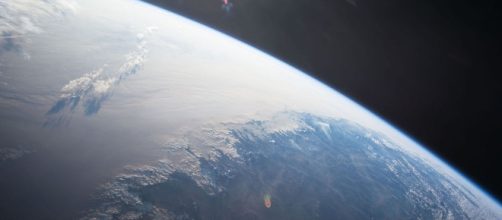Researchers have found that the exoplanets that are most likely habitable appear to be primarily covered in water. Fergus Simpson, Ph.D., of the Institute of Cosmos Sciences at the University of Barcelona, said these planets contain more water than Earth does. Earth itself is about 70 percent water on its surface, but the alien planets are likely covered in vast oceans that make up most of its surface.
“A scenario in which the Earth holds less water than most other Habitable Planets would be consistent with results from simulations, and could help explain why some planets have been found to be a bit less dense than we expected,” Simpson said in a statement.
'Waterworld' planets
The Earth itself, according to Dr. Simpson, is considered a "waterworld," meaning the planet is submerged under a unitary body of water. The new report doesn’t mean that no land is present in habitable exoplanets; rather, its oceans are so deep that an immersed landmass cannot protrude through to the surface.
What Simpson used to draw this conclusion is the Bayesian evidence to predict the prevalence of waterworlds. Due to the Earth’s proximity to the waterworld limit, the model indicates that most habitable planets are dominated by oceans. This scenario is thereby consistent with results from numerical simulations and is probably the reason why exoplanets have low-mass transition on the mass-radius relation.
Finding life beyond Earth
As scientists continue their search for extraterrestrial life, what they’re usually looking for are planets that are within a certain range of their host star, called the habitable zone. In that orbit distance, the planets are just in the right radiation levels to support life as know it. In our case, the Earth is not so far from the sun that it freezes into a rock of ice, and it’s not so close either that bodies of water boil into gas.
Why life evolved on Earth
In the same study, Simpson concluded it has something to do with the balance of water and land. According to the researcher, how life developed – to our own understanding – may be far from complete. However, the idea of exoplanets hosting intelligent life is not an improbability either.
Simpson's study coincides with the recently discovered LHS 1140b, a planet that's found to consist of both rock and water. Much like the Earth, the exoplanet is within the habitable zone, and is 40 light years away.

